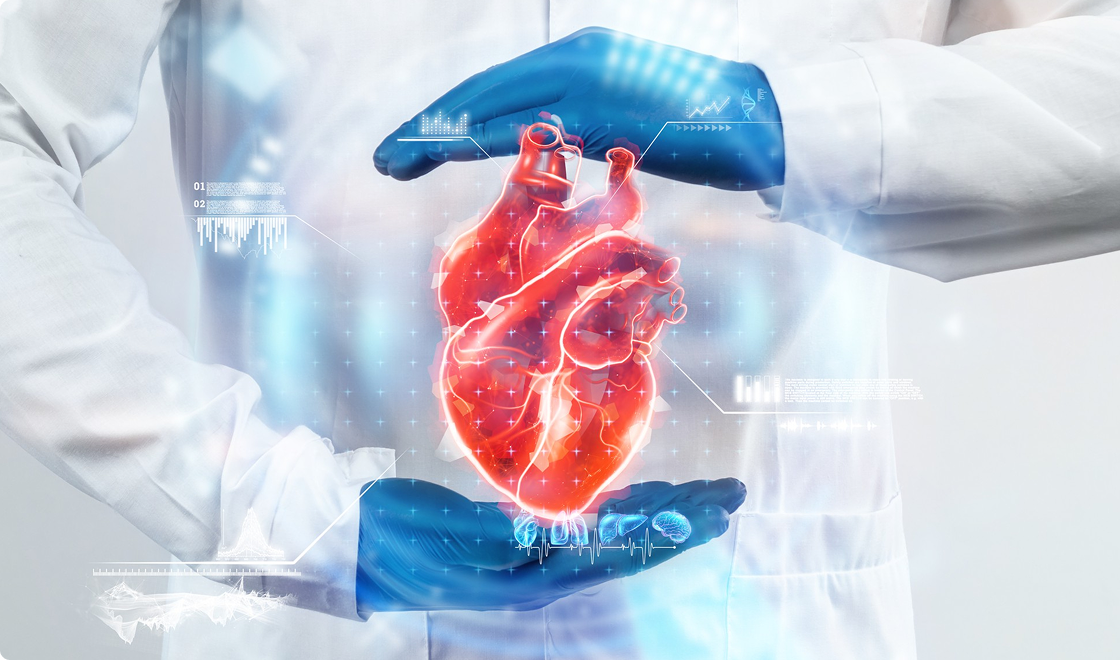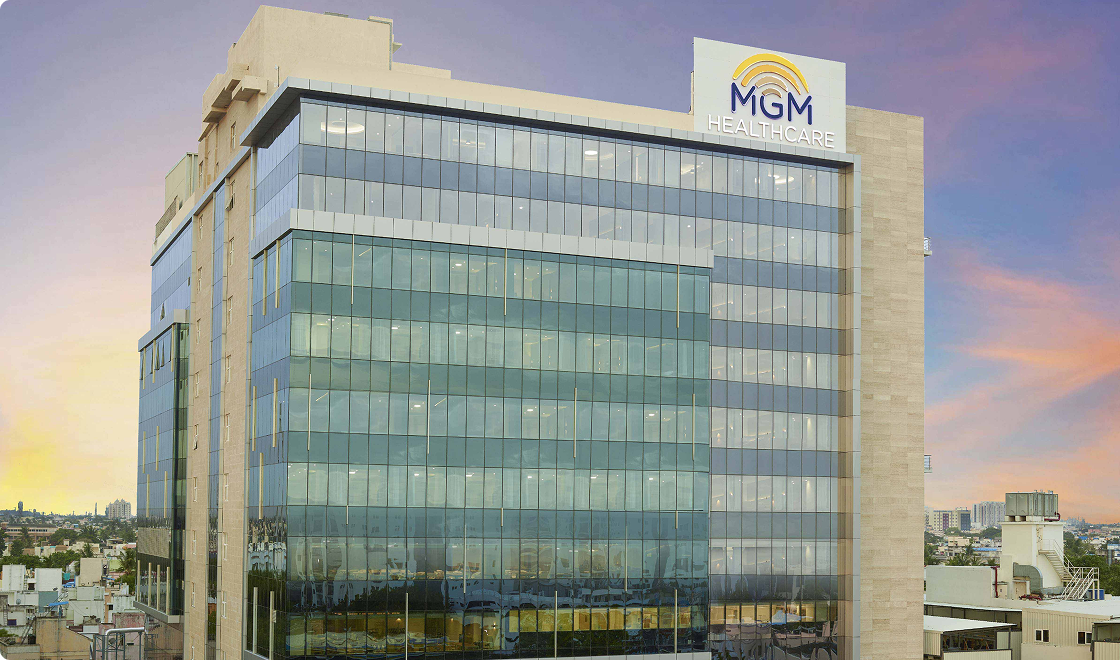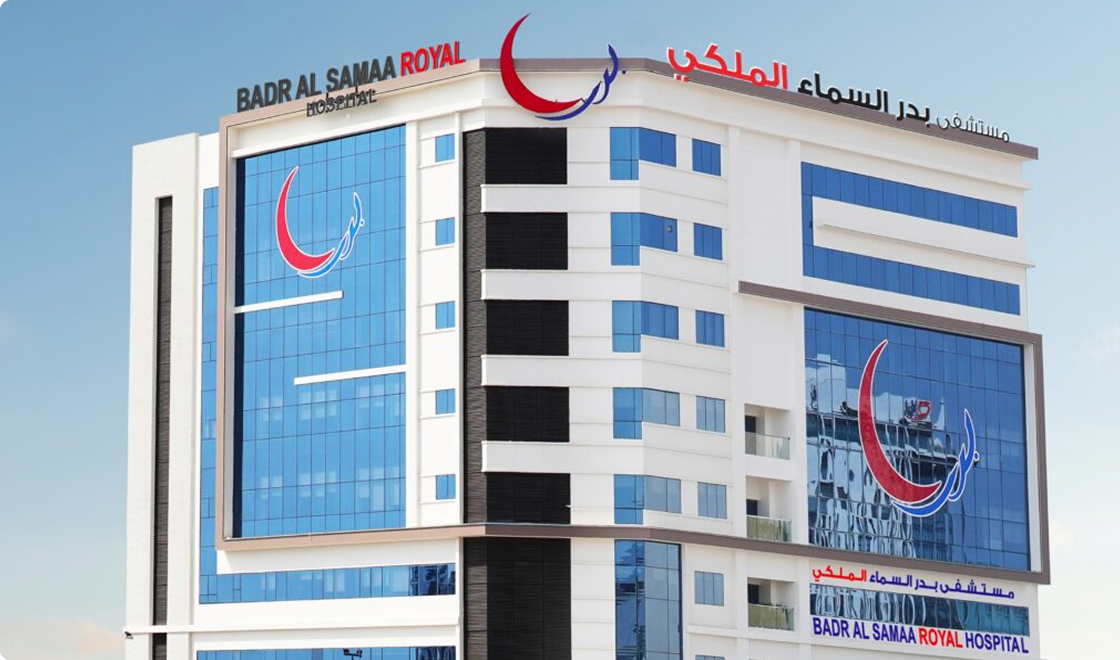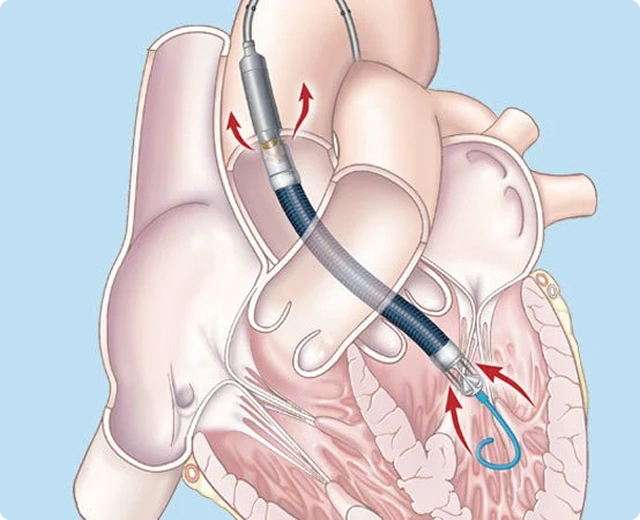
Mechanical Circulatory Support (MCS)for High-Risk Cardiac Interventions
Mechanical Circulatory Support (MCS) refers to temporary devices used to assist the heart in pumping blood during complex and high-risk cardiac procedures, such as percutaneous coronary interventions (PCI). These systems provide advanced cardiac support for patients with severely weakened heart function or those undergoing procedures where the risk of cardiac compromise is high. The use of MCS in high-risk PCI improves procedural safety, maintains stable circulation, and reduces complications by supporting the heart's workload when it cannot sustain adequate output on its own.
Indications forMechanical Circulatory Support
Early intervention with Mechanical Circulatory Support (MCS) greatly enhances outcomes by stabilizing circulation, preventing organ dysfunction, and reducing the risk of procedural complications in high-risk cardiac patients. Timely use of circulatory assist devices can improve survival rates and overall recovery in critical cardiac conditions.
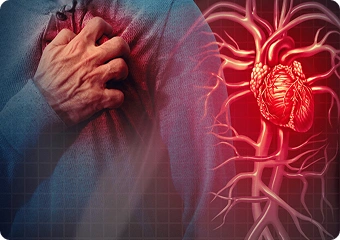
Cardiogenic Shock
Mechanical circulatory support offers immediate support for weak heart muscles in cardiogenic shock, restoring adequate blood flow to critical organs. This early intervention prevents multi-organ dysfunction and allows the heart time to recover or stabilize, reducing the risk of mortality associated with severe, life-threatening pump failure conditions.
High-Risk Coronary Interventions (CHIP PCI)
During complex or high-risk coronary interventions, a temporary heart pump provides continuous circulatory support, ensuring sufficient blood supply to vital organs. This reduces procedural complications and enables interventional cardiologists to safely perform high-risk PCI procedures in patients with compromised left ventricular function or severe coronary artery disease.
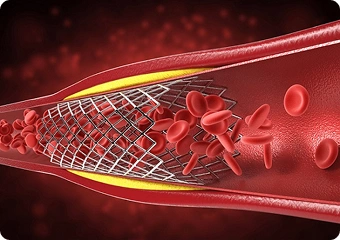
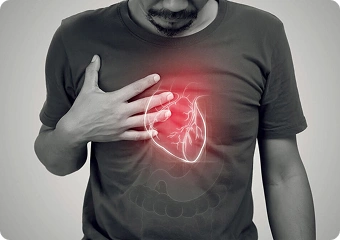
Acute Heart Failure
In cases of acute heart failure, mechanical circulatory support devices maintain systemic perfusion and cardiac output, reducing symptoms like breathlessness and fatigue. This allows the heart to rest and potentially recover while also buying time for decisions regarding definitive treatment, such as transplant or long-term therapy options.
Bridge to Recovery or Transplant
MCS plays a critical role as a bridge to recovery or transplant, sustaining life-sustaining circulation when heart function severely declines. This support allows the heart to heal in reversible cases or keeps the patient stable until a suitable donor heart becomes available for transplant surgery.
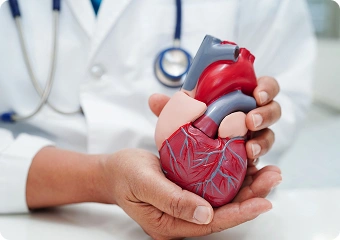
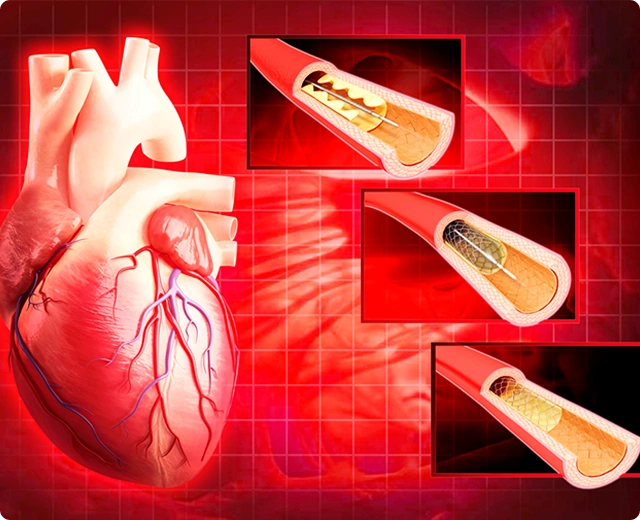
Complex High-Risk Indicated PCI (CHIP PCI)
CHIP PCI refers to percutaneous coronary interventions performed in patients with severe coronary artery disease, poor ventricular function, or multiple co-morbidities that increase procedural risk. These high-risk cases require careful planning and support to prevent complications. MCS-assisted PCI plays a vital role by providing hemodynamic stability during the procedure, ensuring continuous organ perfusion, and reducing the likelihood of adverse events. This protective approach allows cardiologists to perform complex interventions safely in vulnerable patients, improving procedural success and patient outcomes.
Types of Mechanical Circulatory Support Devices We Use
IABP
Enhances coronary perfusion and reduces cardiac workload during shock or high-risk PCI.
Impella
Supports left ventricular function, providing direct unloading and improved output.
ECMO
Offers full cardiac and respiratory support in severe cardiac or pulmonary failure.
CentriMag
Temporary device supporting both ventricles in critical heart failure or as a bridge to transplant.
Benefits of Mechanical Circulatory Support in Our Heart Clinic
Our heart clinic offers the best cardiac device care, ensuring safe and effective use of MCS for critically ill patients. These devices provide essential hemodynamic stability during complex procedures, minimizing complications and improving survival rates. MCS enhances high-risk PCI management by supporting weak heart function, maintaining organ perfusion, and allowing time for recovery or further intervention. Personalized monitoring and post-procedural care ensure optimal outcomes and long-term patient stability with reduced procedural risks.
Why Choose Our Heart Clinic for MCS and CHIP PCI
Expert Cardiac Team
Specializing in handling complex MCS and CHIP PCI procedures with proven expertise.
Advanced Device Support
Access to the latest circulatory assist devices ensures patient safety and procedural success.
Comprehensive Care Approach
Personalized assessment, intervention, and post-procedure monitoring for optimal recovery.
High Success Rates
Recognized for excellent outcomes in high-risk PCI management and MCS-supported interventions.
Trusted Cardiac Facility
Known for delivering the best cardiac device care in critical cardiac treatments.
Our Locations
Discover morefrequently asked questions
-
Mechanical circulatory support (MCS) refers to devices that temporarily aid the heart’s pumping ability during severe cardiac dysfunction. These systems improve blood circulation and organ perfusion in critical situations. MCS is often used in high-risk cardiac interventions or severe heart failure.
-
ECMO is considered a type of mechanical circulatory support that assists both heart and lung function. It oxygenates blood outside the body and maintains circulation when the heart or lungs fail. ECMO is used in severe cardiopulmonary conditions requiring full support.
-
In hospitals, MCS involves the use of specialized devices like IABP, Impella, ECMO, or CentriMag to stabilize patients with life-threatening cardiac conditions. These devices provide vital circulatory assistance during surgeries or emergencies. MCS ensures adequate blood flow until the heart recovers or further treatment is provided.

